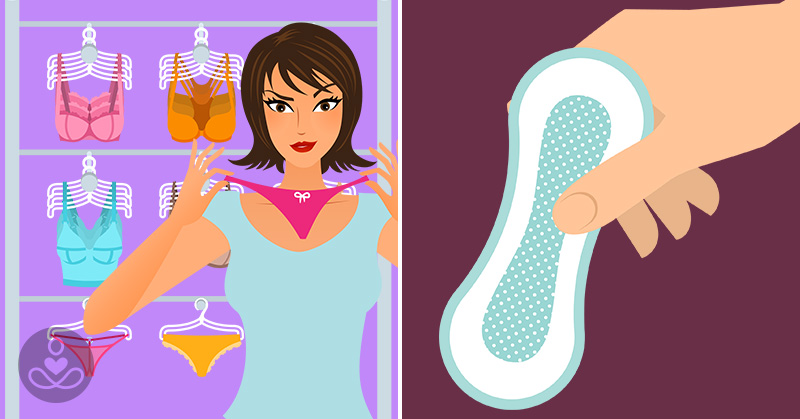In the past, a woman’s body was rarely talked about. Periods and sexuality were seen as taboo topics, which led many women to remain in the dark about their own bodies. Misconceptions like the saber-toothed vagina and periods that were so poisonous that they cause flowers to wilt were believed to be fact, and surprisingly enough there are still misconceptions that many women believe today! We’ve (thankfully) moved away from the belief that a vagina has teeth, but some of these modern misconceptions can actually have serious repercussions for women today.
Read: 6 Things You Shouldn’t Do In Bed to Get a Good Night’s Sleep
5 Major Feminine Hygiene Mistakes
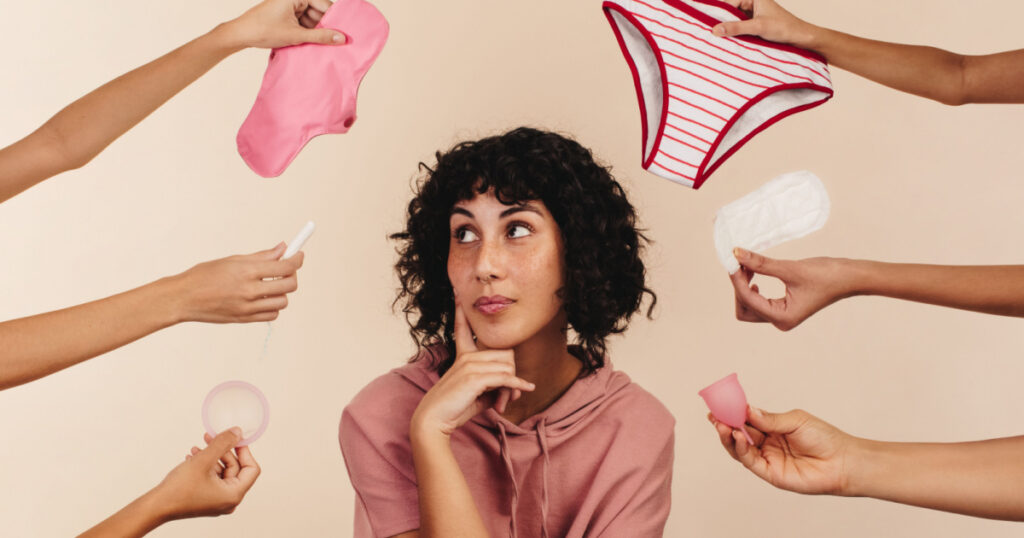
While women today are generally more educated about feminine hygiene than women in the past, there are still some very common practices that are detrimental to women’s health.
1. Wearing Panty Liners Every Day
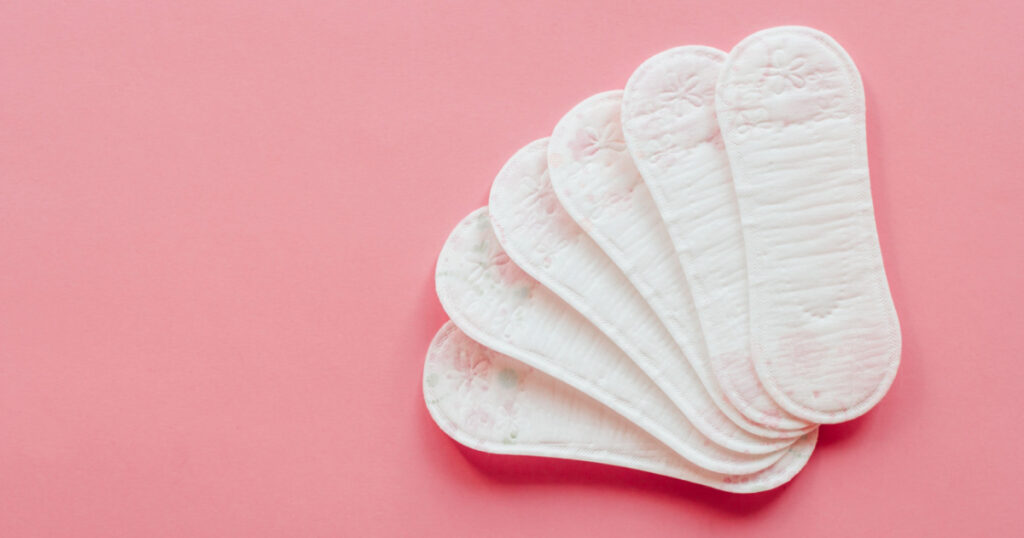
While panty liners are designed to absorb vaginal discharge and spotting, they should only be worn at the beginning and end of your menstrual period. Panty liners create more of a moist environment, and if you wear them all the time you will be at more of a risk of vaginal infections.
What to do instead: If you absolutely must wear panty liners, try to wear them less often (only at the beginning and end of your cycle), and change them often (every 4 hours).
2. Not Changing Tampons Often Enough

The instructions of a tampon box typically say to change the tampon every 4-8 hours, including at night, but in reality, you should be changing a tampon more often. Doctors strongly recommend changing it every 4 hours to eliminate the risk of toxic shock syndrome.
What to do instead: Select the absorbency of your tampons based on your own personal flow and change the tampon every 4 hours. Or, alternatively, use a menstrual cup to cut down on waste and minimize bacteria.
3. Staying in a Wet Bathing Suit

When you’re hanging out by the pool it can be easy to spend the entire day in your bathing suit. But, wearing your wet bathing suit for excessive amounts of time can allow bacteria to develop, which can cause various infections.
What to do instead: Remove your wet bathing suit as soon as possible after swimming in the ocean or a pool.
Read: Teen’s Heavy Period Turns Out to be a Symptom of Rare Cancer
4. Wearing Underwear and Lingerie Made Out of Synthetic Fibers
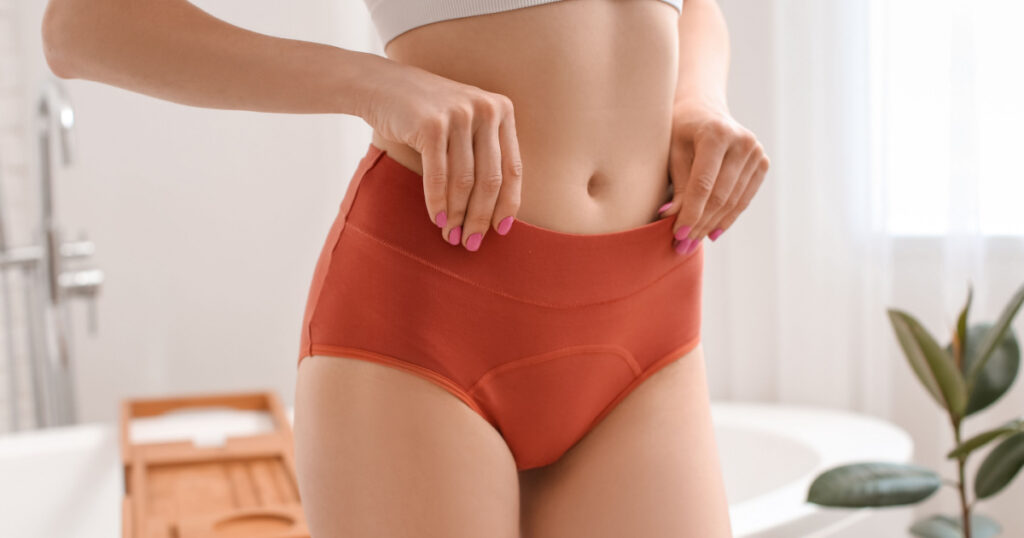
When buying undergarments, many of us will focus on the look and fit before considering what it’s actually made of. Synthetic fibers can be harmful to women’s health because they can promote perspiration and irritation, which can be especially bad for those who are prone to yeast infections.
What to do instead: Buy undergarments made out of material that will breathe, like cotton.
5. Using a Douche to Clean Yourself
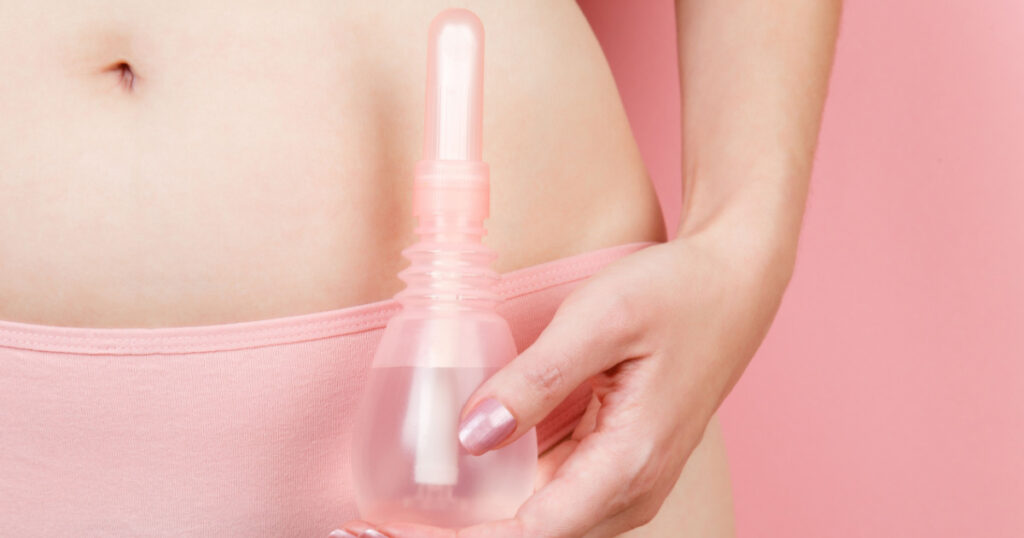
Some women use a douche to clean their vagina. A douche is a device that flushes water into the vagina in order to clear out any vaginal secretions. However, a douche will not only clean out the ‘bad’ bacteria, it will also clean out the good, which disrupts the normal vaginal foundation[1]. The vagina is actually designed to keep itself clean with the help of natural secretions, also known as discharge.
What to do instead: Avoid using perfumed soaps when cleaning yourself as this can strip the healthy balance of bacteria and pH levels in the vagina. Instead, opt for unscented soap to wash around the vagina every day, and wash more often during your menstrual cycle.
The Bottom Line
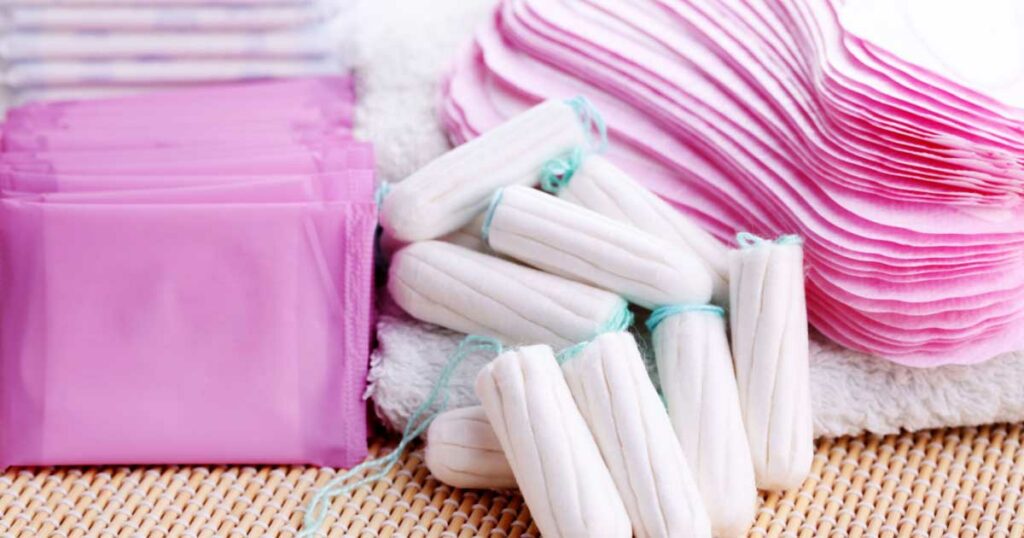
The female body is beautiful but very complex. As discussions of feminine hygiene are becoming more socially acceptable, it’s easier to access reliable information that will help us to become our best, and healthiest selves.
Keep Reading: Getting Your First Period Before or After Age 12 May Increase Your Risk for Heart Problems
Sources
- [1] Bisiayo Fashemi, Mary L. Delaney, Andrew B. Onderdonk, Raina N. Fichorova. (2013). Effects of Feminine Hygiene Products on the Vaginal Mucosal Biome. Retrieved from https://www.ncbi.nlm.nih.gov/pmc/articles/PMC3758931/
